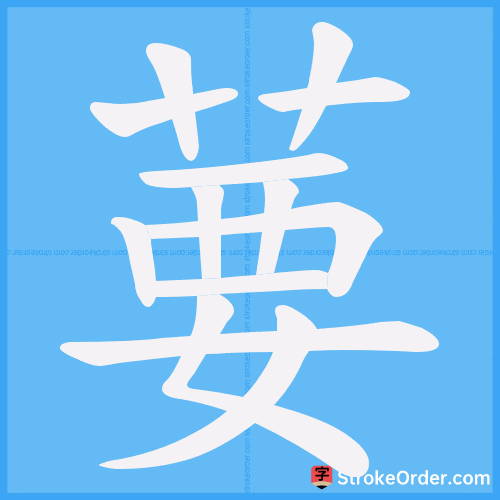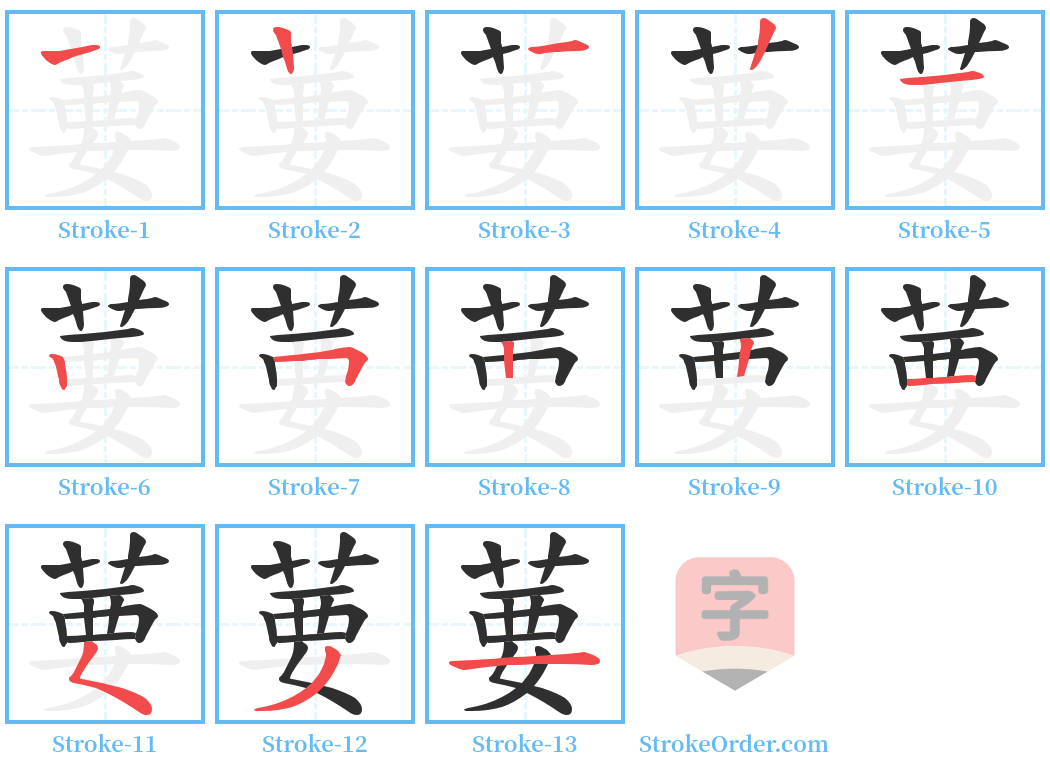葽 Stroke Order
Animated Stroke Order of 葽

Stroke Order Diagrams for 葽

Information of 葽
Pinyin
yāo
Radical
艹
Strokes
12 strokes
Usage
★★
Definition
葽
1. An ancient grass mentioned in old books.
2. (Grass) lush and prosperous. "The lush grass (葽), the girl Luo presents."
Noun: A plant name. Belongs to the family of Yanzhi and the genus Yanzhi, it is a perennial herb. Its roots consist of fine roots clustered together. The leaves are alternate, smooth, and are linear or elongated oval in shape. It flowers in May, with uneven purple corollas. The fruit is slightly concave and spheroid in shape. Commonly known as "Yanzhi."
Adjective: Describing the state of lush vegetation. In "Book of Han, Volume 22, Rites and Music," it states: "The lush grass (葽), the girl Luo presents." Yan Shigu cites Meng Kang, saying: "葽 denotes prosperity." In "Selections of the Literature, Left Si, Shu Du Fu," it reads: "The white-eyed catfish among the lush grass, the birds singing amidst the dense trees."
Noun: A plant name. Belongs to the family of Yanzhi and the genus Yanzhi, it is a perennial herb. Its roots consist of fine roots clustered together. The leaves are alternate, smooth, and are linear or elongated oval in shape. It flowers in May, with uneven purple corollas. The fruit is slightly concave and spheroid in shape. Commonly known as "Yanzhi."
Adjective: Describing the state of lush vegetation. In "Book of Han, Volume 22, Rites and Music," it states: "The lush grass (葽), the girl Luo presents." Yan Shigu cites Meng Kang, saying: "葽 denotes prosperity." In "Selections of the Literature, Left Si, Shu Du Fu," it reads: "The white-eyed catfish among the lush grass, the birds singing amidst the dense trees."